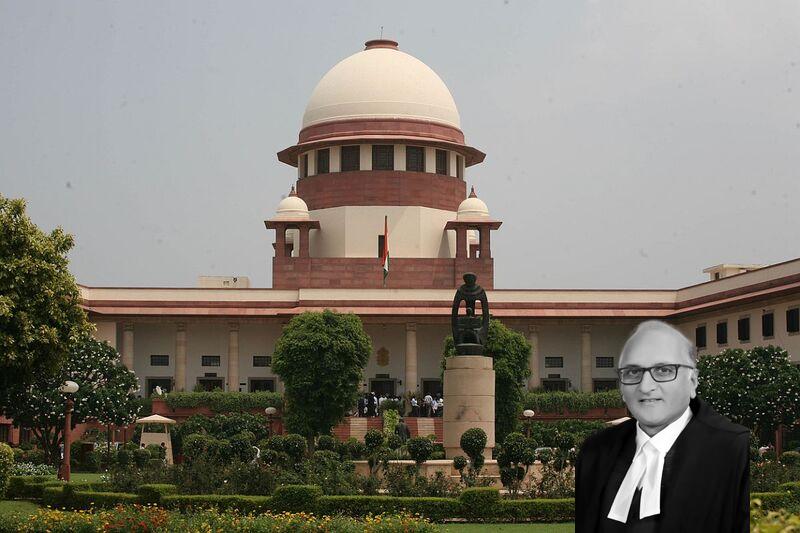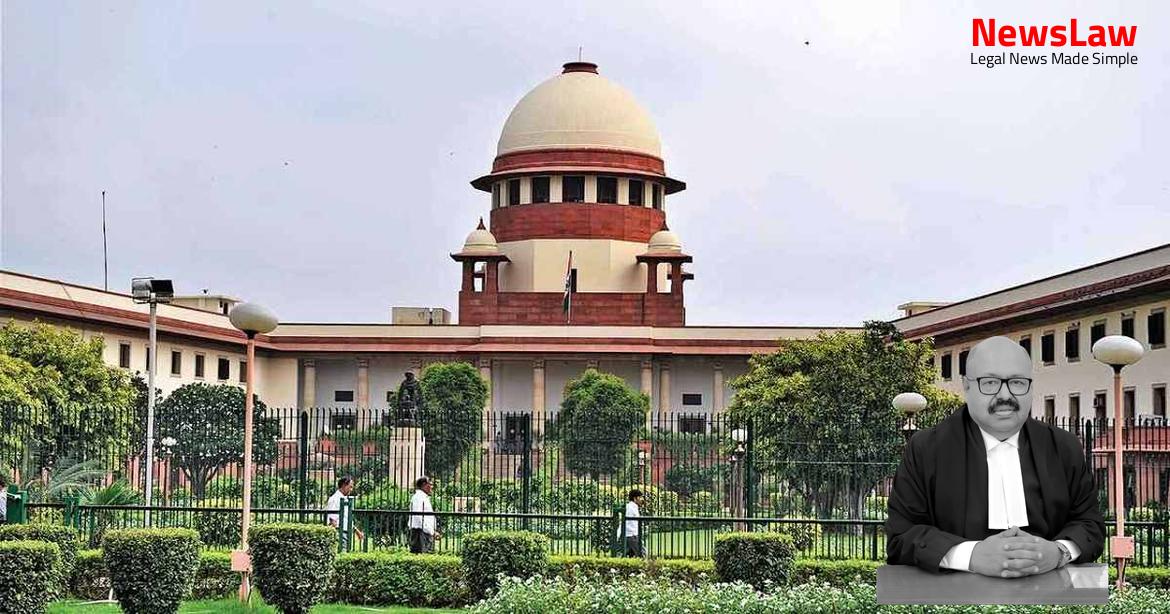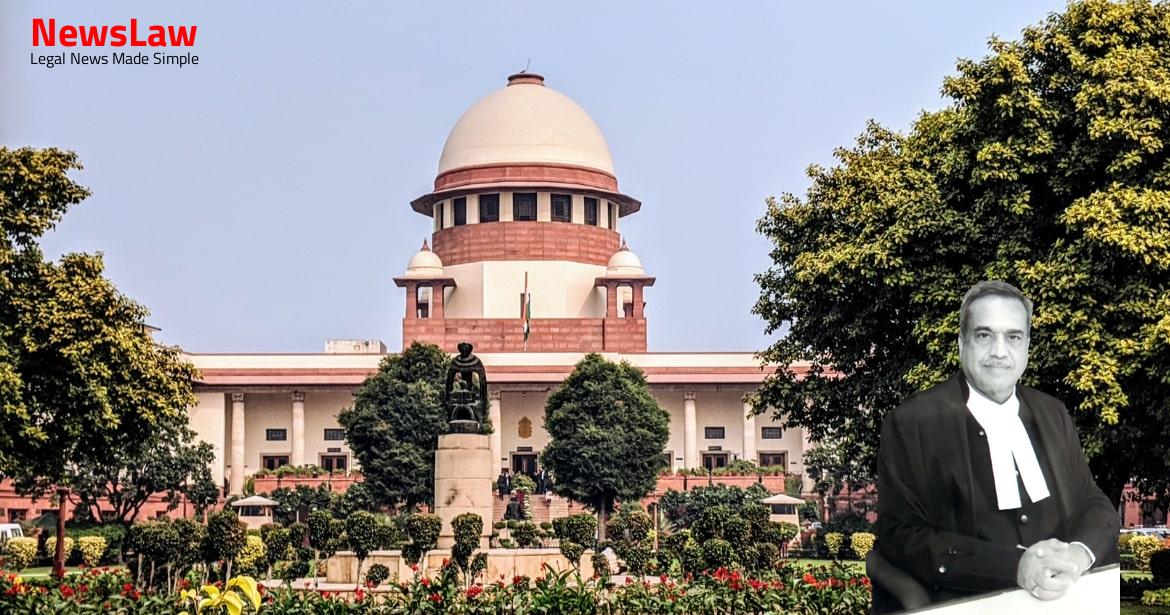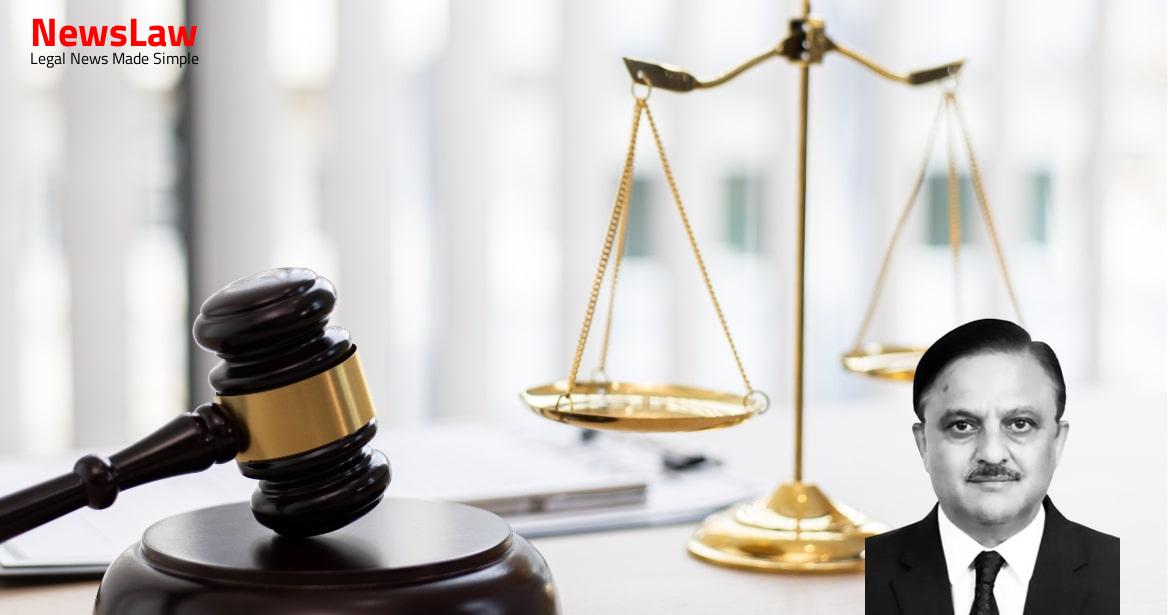These appeals arise from a final order of the Delhi High Court rejecting a petition for quashing criminal proceedings, filed by the DBS Bank India Limited (second respondent in the first appeal /appellant in second the appeal) (hereafter “DBS”). LVB extended loans to RHC Holding and Ranchem, utilizing these FDs as security. On February 12, 2021, a supplementary chargesheet or final report was filed, to implead LVB, represented through its director, (now DBS Bank India Limited after amalgamation), as an accused along with bank officials and the companies RHC Holding and Ranchem. Consequently, when RHC Holding failed to repay the loans to LVB, the FDs of RFL were adjusted by LVB against the outstanding loan amounts. The High Court, by its impugned order, observed that quashing the summoning order against the DBS at this stage may hamper the purpose of the scheme since there was no explicit provision for abatement of criminal proceedings against the DBS bank in the scheme sanctioned by the RBI. DBS appeals to this court, aggrieved by the refusal to quash criminal proceedings by the impugned order; RFL’s appeal is limited to the point that the court ought not to have deferred the issue, for consideration by RBI and should have dismissed the request for quashing, simpliciter and ought not to have indefinitely stayed the summoning order. Additionally, the High Court failed to take into account its own findings regarding interpretation of Clause 3(3) of the amalgamation scheme, that is – “15. Moreover, Clause 3(3) of the scheme incorporates the notion of criminal accountability, and there is no such bar on transferring criminal liability onto the transferee bank.
Sundaranayagam passed in similar circumstances, wherein it was held that no vicarious criminal liability was being passed on to the transferee company in an amalgamation where the relevant Clause of the scheme was more or less identical by observing: “The legal position which emerges from afore-noted judicial decisions is that upon an amalgamation between two companies, the transferor company dies a civil death and the entity which has evolved upon amalgamation cannot be prosecuted for an offence committed by the transferor company. […] So far as clause 8 relied upon by the counsel for the State is concerned, same relates to transfer of legal proceedings. The transfer pertained to civil liability, with no provision concerning the continuation of criminal proceedings for the transferee company. Furthermore, DBS highlighted that RFL itself argued before the High Court that an interpretation from the RBI was necessary and that the Court should not make a determination on this matter. Without prejudice to the submissions made herein, as per the Clause 13 of the Scheme of amalgamation, if any doubt arises in the interpretation of the provisions of the scheme, in that case the matter is to be raised and referred to the RBI.” 8 Therefore, through the current appeal, RFL is blowing hot and cold by contesting the impugned order, asserting that such clarification wasn’t needed and the stay of the summoning order is wrong. – (1)-(2) xxxxxxx (3) If on the appointed date, any cause of action, suit, decrees, recovery certificates, appeals or other proceedings of whatever nature is pending by or against the transferor bank before any court or tribunal or any other authority (including for the avoidance of doubt, an arbitral tribunal), the same shall not abate, be discontinued or be ill any way prejudicially affected, but shall, subject to the other provisions of this Scheme, be prosecuted and enforced by or against the transferee bank: Provided that where a contravention of any of the provision of any statute or of any rule, regulation, direction or order made thereunder has been committed by or any proceeding for a criminal offence has been instituted against, a director or secretary, manager, officer or other employee of the transferor bank before the appointed date, such director, secretary, manager, officer or other employee shall, without prejudice to the application of section 6 of the General Clauses Act, 1897 (10 of 1897), be liable to be proceeded against under such law and punished accordingly, as if the transferor bank, being a banking company had not been dissolved.” Section 45(5)(e) of the Banking Act reads as follows: “45. (2) to (4) xxx (5) The scheme aforesaid may contain provisions for all or any of the following matters, namely:— (e) subject to the provisions of the scheme, the continuation by or against the banking company on its reconstruction or, as the case may be, the transferee bank, of any actions or proceedings pending against the banking company immediately before the [reconstruction or amalgamation]” Clause 13 of the Amalgamation scheme in the present case, i.e., relating to interpretation by RBI in the case of disputes, is as follows: “ 13.
As is apparent from the factual narrative and the above discussion, the issue which this court is concerned with, is whether a transferee entity (here, a successor bank) can be fastened with corporate criminal liability for the offences which the amalgamating entity- the erstwhile LVB is accused of. Nattrass, including the following relevant observations: “In my view, therefore, the question: what natural persons are to be treated in law as being the company for the purpose of acts done in the course of its business, including the taking of precautions and the exercise of due diligence to avoid the commission of a criminal offence, is to be found by identifying those natural persons who by the memorandum and articles of association or as a result of action taken by the directors, or by the company in general meeting pursuant to the articles, are entrusted with the exercise of the powers of the company.” In Meridian Global Funds Management Asia Ltd v Securities Commission, a more nuanced approach was adopted: “These primary rules of attribution are obviously not enough to enable a company to go out into the world and do business. The company therefore builds upon the primary rules of attribution by using general rules of attribution which are equally available to natural persons, namely, the principles of agency. To say that a company cannot do something means only that there is no one whose doing of that act would, under the applicable rules of attribution, count as an act of the company. Another possibility is that the court might interpret the law as meaning that it could apply to a company only on the basis of its primary rules of attribution, i.e. their Lordships would wish to guard themselves against being understood to mean that whenever a servant of a company has authority to do an act on its behalf, knowledge of that act will for all purposes be attributed to the company. It is a question of construction in each case as to whether the particular rule requires that the knowledge that an act has been done, or the state of mind with which it was done, should be attributed to the company. In such circumstances, it would be necessary to ascertain that the degree and control of the person or body of persons is so intense that a corporation may be said to think and act through the person or the body of persons.” Earlier, in the Constitution Bench ruling in Standard Chartered Bank v Directorate of Enforcement, the court referred to Section 11 of the IPC, which defined “person”.
The intent to prosecute corporate bodies for the offences committed by them was clear and 13 explicit, and the statute did not intend to exonerate them from prosecution. Black defines amalgamation as the “act of combining or uniting; consolidation amalgamation of two small companies to form a new corporation >…” The Companies Act, 2013 does not contain any express definition of amalgamation; it rather outlines and regulates the procedure for amalgamation and spells out its legal effect, which results in extinguishment of the corporate identity of the transferor company [read, in this case, LVB]. It was held that after the amalgamation of two companies, the transferor company ceases to have any entity, and the amalgamated company acquires a new status, and it is not possible to treat the two companies as partners or jointly liable in respect of their liabilities and assets.
In this case, one Mathura Tea Estate owned Saroda Tea Company Ltd., which was covered by the EPF Act. Jayant Bhushan, Learned Senior Advocate for the Appellants, that damages levied in terms of Section 14B of the EPF Act cannot be foisted onto his clients. It is true that it is not a river but a mere rivulet that segregates and distinguishes the legal concepts of damages or compensatory damages or exemplary damages or deterrent damages or punitive damages or retributory damages. But we are concerned with a criminal liability under penal provision and not a civil liability. As noted earlier, Clause 3 (3) of the scheme in this case, no doubt mentions that legal proceedings would be continued by or against the transferee bank (read DBS Bank). – (1)-(2) xxxxxxx (3) If on the appointed date, any cause of action, suit, decrees, recovery certificates, appeals or other proceedings of whatever nature is pending by or against the transferor bank before any court or tribunal or any other authority (including for the avoidance of doubt, an arbitral tribunal), the same shall not abate, be discontinued or be ill any way prejudicially affected, but shall, subject to the other provisions of this Scheme, be prosecuted and enforced by or against the transferee bank: Provided that where a contravention of any of the provision of any statute or of any rule, regulation, direction or order made thereunder has been committed by or any proceeding for a criminal offence has been instituted against, a director or secretary, manager, officer or other employee of the transferor bank before the appointed date, such director, secretary, manager, officer or other employee shall, without prejudice to the application of section 6 of the General Clauses Act, 1897 (10 of 1897), be liable to be proceeded against under such law and punished accordingly, as if the transferor bank, being a banking company had not been dissolved.” 32. Such amalgamation is to ensure that the interests of the depositors, the creditors and others who had invested, or given credit to in the erstwhile bank, before its sickness, and that the general public are protected. Certified copy of email dated 07.01.17.
Limited by extending loan to the entities which the promoters/accused persons used to square of their liabilities. From the investigation conducted so far, the supplementary charge sheet has been prepared against LVB Bank (Now DBS Bank India Limited) and bank officials namely (1) Anjani Kumar Vermam, (2) S. Therefore, there is in fact, no involvement of DBS Bank, revealed in the charge sheet filed by the Delhi Police. To permit prosecution of DBS for the acts of LVB officials (who are in fact, facing criminal charges) would result in travesty of justice. No costs.



